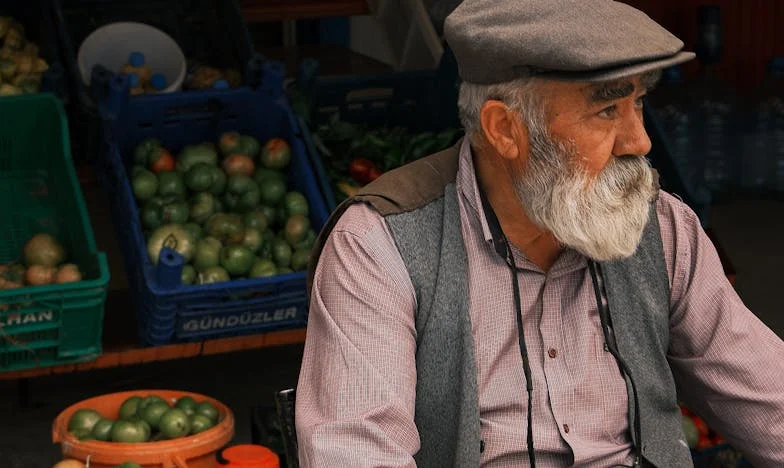Thrown From the Bus: A Winter Afternoon That Changed Everything
“Off the bus. Now.”
His voice cut through the stale air, sharper than the cold that crept in every time the doors opened. My fingers trembled, not just from the chill that seeped through my gloves, but from the humiliation. The city bus rattled to a stop at the corner of Main and 14th, where slush and dirty snow covered the curb. I looked up at the driver—mid-forties, red beard, eyes hard as winter asphalt. I searched his face for a hint of mercy, but found only exhaustion and irritation.
“Ma’am, you can’t ride without a ticket,” he repeated, louder now. Heads turned. I felt the weight of twenty pairs of eyes—some averted, most indifferent, two or three openly annoyed that I was holding up their journey. My heart drummed in my chest. I tried to explain, voice barely above a whisper, “I lost my wallet. My daughter was supposed to pick me up. It’s just a few blocks.”
He didn’t care. He was already looking past me, at the impatient faces. “Rules are rules.”
A young man in a hoodie shifted in his seat. He opened his mouth, hesitated, then looked away. No one else moved.
I stood, knees aching, and shuffled down the aisle, my cane tapping a slow, embarrassing rhythm. As I reached the door, I turned back to the driver. My throat tightened, but I forced the words out, sharp and clear: “Thank you.”
He blinked, surprised. For a moment, I thought he might soften, but the doors hissed shut behind me, and I was left standing in the biting wind.
The snow stung my cheeks as I started the long walk home. My daughter, Emily, had forgotten—again. She’d promised to pick me up after my doctor’s appointment, but she was always busy, always tired. I tried not to blame her; she worked two jobs, juggled the chaos of raising three kids on her own after her husband left. But I couldn’t help the ache in my chest—an ache that wasn’t just physical.
I trudged past shuttered storefronts and neon-lit diners, my mind replaying the scene on the bus. Was it pride that made me say “Thank you”? Or was it defiance—a refusal to let a stranger decide my worth?
The sidewalks were slick. Somewhere between the pharmacy and the laundromat, my foot slipped, and I crumpled to the ground. A teenager on a skateboard stopped, hovering awkwardly. “You okay, ma’am?”
I brushed snow from my coat. “Just old bones. They don’t bounce back the way they used to.”
He shrugged, offered a hand, and helped me up. “You need a ride somewhere?”
I shook my head. “Thank you.” Again, those words. Maybe it was all I had left—gratitude in the face of indifference. He nodded and rolled away, leaving me to limp the final blocks home.
My apartment building was old—peeling paint, broken elevator, neighbors who mostly kept to themselves. I fumbled with my keys, hands numb, and finally made it inside. The heat was barely working. I peeled off my coat and sat by the window, watching snow pile up on the fire escape.
I thought about calling Emily, but I knew her voice would be tight, apologetic, and I couldn’t bear to hear the guilt. Instead, I made tea, cradling the mug in both hands. The silence pressed in, heavy and familiar.
When Emily finally called, it was nearly 8 PM. “Mom, I’m so sorry, I completely lost track of time. Work was crazy, and then Jake had a fever—”
“It’s okay,” I interrupted, my voice gentle. “I made it home.”
She sighed. “I really am sorry. I wish I could do more.”
I wanted to tell her about the bus, about the humiliation and the cold. But I didn’t. Instead, I said, “We do what we can.”
After we hung up, the loneliness settled in, deeper than the cold. I thought about the bus driver. About the other passengers, silent and unmoved. I wondered how many times I’d looked away when someone else struggled.
Later that night, I heard voices in the hallway—an argument about rent, the clatter of someone dropping groceries. Life went on, indifferent to the small dramas unfolding in its cracks.
Days passed. My bruises faded, but the memory lingered. At the grocery store, I watched a young mother with a crying toddler fumble for change at the checkout. The cashier’s patience was thin. I remembered the feel of the bus steps under my aching feet, the cold wind, the sting of rejection. I stepped forward and handed her a dollar. She looked at me, surprised, and said, “Thank you.”
Those words again. Simple, but loaded with meaning—gratitude, defiance, survival.
That winter, I started noticing others like me: the old man counting coins for coffee, the teenager sleeping in the library, the woman in scrubs nodding off on the train after a double shift. I saw them—and I tried not to look away.
Sometimes, the worst wounds are invisible. Sometimes, the smallest kindness is a lifeline. I may be 80, but I still have a voice. Even if all I can say is “Thank you.”
Do people see the dignity behind the wrinkles and trembling hands? Or are we all just passengers, looking away when it’s easier? What would you have done if you were on that bus?
